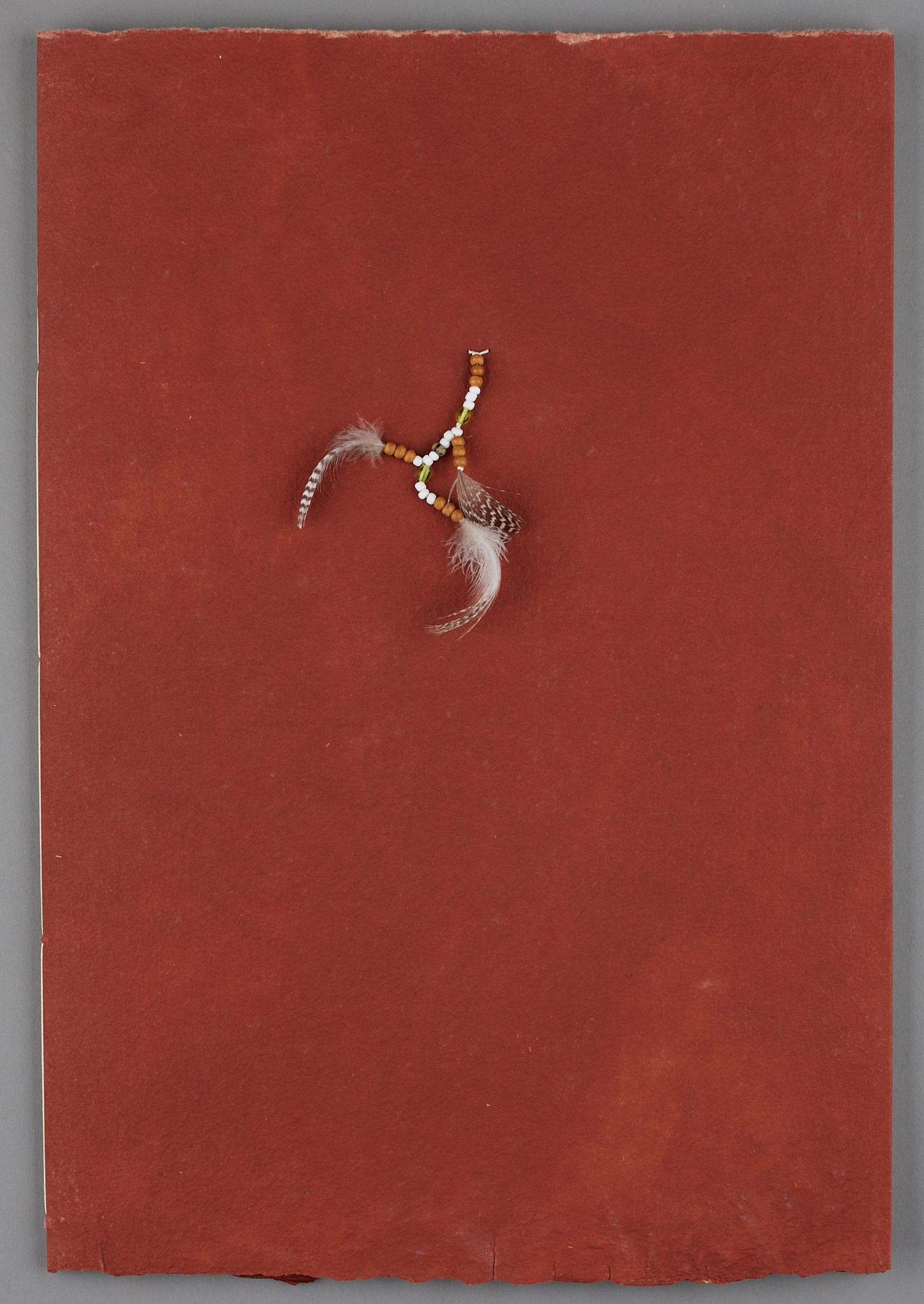*French Paper cover edition only available.
The Sacajewea Fragments
DEBRA MAGPIE EARLING
at the REAL LEAD saloon, 2023
The Sacajewea Fragments was hand-set in Monotype Dante with Neuland, Comstock, and Cloister types for display. The paper is vintage hand made Imago by Robert Serpa. Buffalo cartouche by Keith Cranmer, Inge Bruggeman, Monique Comacchio, Keith Cranmer, Susan Filter, Becky Fischbach, Jonathan Gerken, Mark Gorenstein, Peter Koch, Mark Livingston, Paul Oh, Jennifer Osgood, Rik Ritchey, Christopher Stinehour, & Spencer Wong completed the work between lunch and cocktails on Saturdays during the Spring of 2023.
from The Lost Journals of Sacajewea
by Debra Magpie Earling
with photo-interventions by Peter Rutledge Koch
and a wood engraving by Keith Cranmer
The fragments “Stolen” and “Mandan Camp” are lyrical compositions in the form of poetic narratives by Debra Magpie Earling. These previously unpublished texts are part of a greater project, The Lost Journals of Sacajewea, that first appeared in a distinctive [fractured] prose style, illustrated and printed by Peter Rutledge Koch for Editions Koch in 2010. She continued working with the early pieces to produce a novel by the same name published in 2023 by Milkweed Editions.
With the re-establishment of The REAL LEAD Saloon in its new quarters at The CODEX Foundation in 2022, we asked Debra if we might publish a few fragments from her earlier experiments as a chapbook in our series of lyrical voices from the American West. Happily, she consented.
The two fragments were hand-set in Monotype Dante designed by Giovanni Mardersteig and cast by the Bixler Typefoundry for this edition. The composition was particularly challenging, as the fragments are deliberately punctuated, spaced and leaded in the manuscript to give Sacajewea’s speech a figurative visual complexity reflecting the oral tradition that Debra here re-creates for us.
Keith Cranmer was invited to produce a wood-engraved cartouche to introduce the texts and we began to prospect the rich holdings of the Foundation’s handmade paper supply. The text was printed on vintage Robert Serpa handmade paper at The CODEX Foundation’s Logan Book Arts Center. The cover, consisting of our last remaining stock of Cave Paper’s “Venetian,” a brick-red paper commissioned in 2006 for Editions Koch’s Watermark by Joseph Brodsky, is embellished with trade beads and feathers. The “smoked buffalo rawhide” paper wrapper [the last remaining sheets] was made by Amanda Degener for the limited edition of The Lost Journals of Sacajewea at Cave Papers in Minneapolis, Minnesota in 2004.
The digitally printed photographic endsheets are varying proofs from the first edition of The Lost Journals prepared by Donald Farnsworth at Magnolia Editions and printed on Kozo handmade paper with the assistance of Jonathan Gerken and Tallulah Terryll.
Edition: 75 numbered copies, 32 of which are wrapped in buffalo rawhide paper and the remaining copies in brightly colored French 130 lb. cover.
1-32 —sold —
33-75 $500.00
Sacajewea is one of the most famous American Indian women – famous because of the literature of exploration and the mythologies of Western adventure – and yet we are in a curious state of knowledge concerning her person. We know for certain that she traveled from the Mandan villages at the mouth of the Knife River to the headwaters of the Missouri, over the Bitterroot Mountains to the mouth of the Columbia, and then back to the Mandan villages with Toussaint Charbonneau, who was employed as an interpreter for the Lewis and Clark expedition from 1804 to 1806. We know neither how to spell nor pronounce her name, and we have conflicting accounts of her birth, parentage, early life, the circumstances of her marriage, her life after the expedition returned, her children, the circumstances of her death, and the whereabouts of her remains.
Debra Earling’s poetic fragments take us behind the eyes and ears of this remarkable pregnant 17-year-old enslaved woman traveling up the Missouri River with the “expedition of discovery” in 1804 –1805. She is haunted by visions. In The Lost Journals of Sacajewea we accompanied the texts with photographs taken along the expedition’s trail years later. Ironically, a great number of early Montana photographs were submitted as evidence in legal disputes concerning mining disasters and industrial predation and preserved in the collections of the Library of Congress. As the “Frontier” disappeared, the “Real West” burst upon the landscape like poisonous mushrooms after a forest fire.
Debra is a member of the Bitterroot Salish tribe and lives in Missoula, Montana. Her first novel Perma Red received the American Book Award, the Mountains and Plains Bookseller Association Award, and a Spur Award. She received a Guggenheim Fellowship in 2008. Her novel The Lost Journals of Sacajewea was published by Milkweed Editions in 2023.
« Back to Publications


